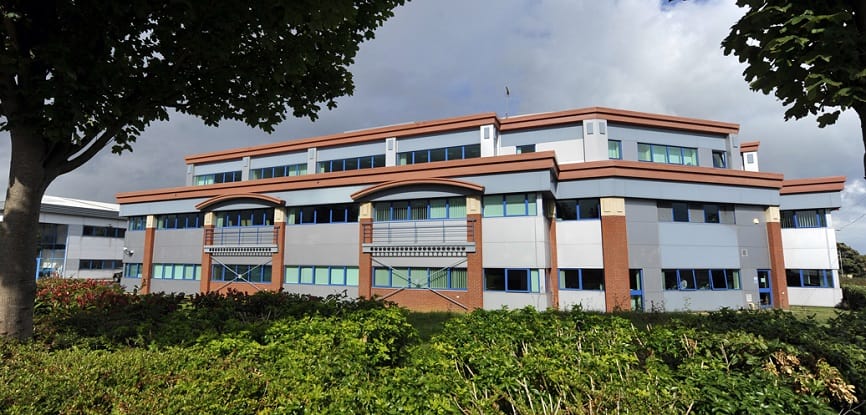
The Kent Innovation Centre in Broadstairs will become Thanet council’s first low carbon building after a successful bid for £1.1million to carry out the works.
The bid, made by the council’s Climate Change officer Hannah Scott, was granted via the Public Sector Decarbonisation Fund.
The work to be carried out will involve exchanging the gas boilers for three air source heat pumps. These are like reverse refrigerators which use small amounts of electricity to take heat from cool air outside the building, concentrate it and pump it inside.
As the electricity can be sourced through renewable means, the heat provided to the KIC will be renewable.
Roof and window insulation will be added to improve heat efficiency and there will be enlarged radiators as the heat provided by the pumps is at slightly lower temperature than gas boilers. ●
There will be a heat exchange unit in the roof and solar panels will be installed. A battery bank will be added for electricity storage.
A council document outlining the plans says: “TDC called a climate emergency in 2019 and pledged to become net carbon zero by 2030. TDC needs to aim to decarbonise all estates and activities over the next ten years.
“A large proportion of our total greenhouse gas emissions come from the gas central heating of buildings we own. The decoupling of our heating supply from fossil fuels is complicated and expensive and so external funding was sought.
“In January we were told that the PSDF was oversubscribed, however there was an option to receive the money through a section 31 agreement.”
The project will provide a completely electric heating supply and if electricity is purchased or made from renewable sources then the heating supply becomes fully renewable and also means savings on the council’s bills.
The centre is rented out as office space, shared space and meeting rooms and is sited across from the former Christ Church University campus.
A full outline of the project will be discussed by councillors in June.

